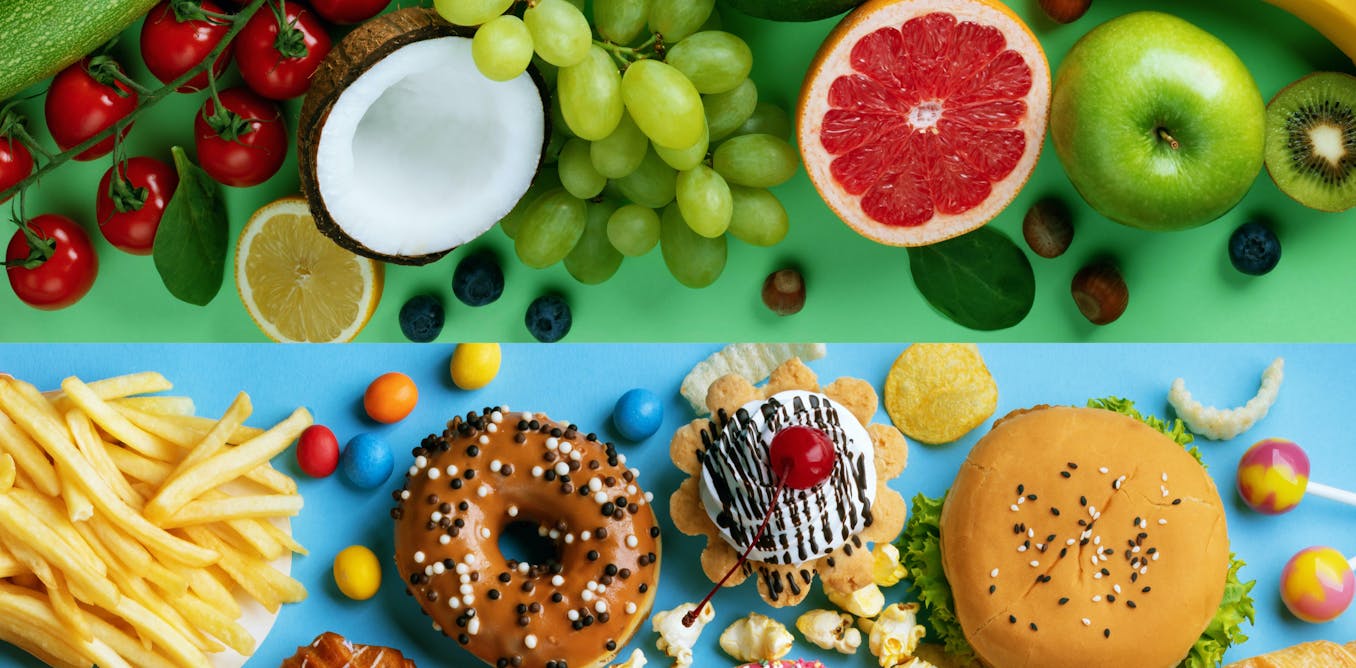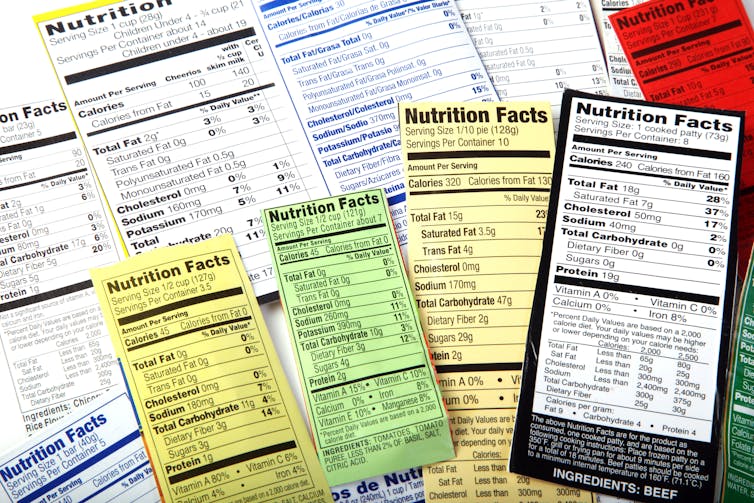Diet, Calories, Weight Gain, Research
"The calorie counts on food labels today are all wrong.""More than 120 years on, these 'Atwater factors' are still the basis for how calorie counts on all food packaging are derived.""Humans, however, are not bomb calorimeters. We are only able to extract a proportion of the calories locked up in any given food ... protein actually has a caloric availability of 70 percent, meaning for every 100 calories of protein that makes it into the bloodstream, we are only ever able to use 70 calories.""By comparison, fat has a caloric availability of 98 percent. As for carbs, it depends on whether we are talking about complex [90 percent available], or refined [95 percent available]."Giles Yeo, molecular geneticist, Cambridge University"We can't blame our metabolism for the weight we gain in middle age.""The calories we burn each day are incredibly stable all through adulthood, from our 20s up until we hit about 60."Herman Pontzer, author, Burn: The Misunderstood Science of Metabolism

Calories represent the basic units of measurement indicating the amount of energy in food. 2,500 calorie-intake daily suffices the average adult male, while 2,000 a day represents what the average woman should consume for good health. In theory, most people believe that a piece of chocolate cake with 500 calories is exchangeable with a 500-calorie helping of chicken on the dinner plate. Sounds reasonable, a calorie is a calorie, after all.
Researchers at the University of Toronto last year reached a conclusion through their studies that 20 percent of calories in almonds tend to remain unavailable to our bodies leaving principle investigator John Sievenpiper to declare, "a calorie labelled may not be a calorie absorbed". In the late 1880s Wilbur Atwater, an American chemist, studied the effect of food on the human body. He measured the combustion heat of feces with use of a "bomb calorimeter".
And even though his findings, taking it for granted that a calorie is a calorie irrespective of the source has been in general agreement ever since, more current research concludes otherwise. And although it is now accepted that calories from various foods impact on us differently, the food industry is complacent with its comfortable love affair with treating all calories as having an equal impact on the human digestive system and the ability of the body to fully absorb all the calories in any given food product.
A research team at Duke University published a paper last year that debunked the theory that advancing age creates weight gain, that the human body metabolizes its food intake differently, slows down considerably as the body ages. The researchers studied the average daily calories burned by 6,400 people from newborns to age 95 going about their daily lives. From age 60s onward metabolism does slow but at a negligible rate of .07 percent annually.
How many calories are in each macronutrient?
| Macronutrient | Heat of combustion | Percent available | Available energy |
|---|---|---|---|
| Protein | 5.65 calories/gram | 92% | 4.0 calories/gram |
| Fat | 9.40 calories/gram | 95% | 8.9 calories/gram |
| Carbohydrate | 4.1 calories/gram | 97% | 4.0 calories/gram |
The largest ongoing scientific nutrition study of its kind led by an international team of scientists in 2019, including researchers from King's College London, concluded that individual responses to similar foods are unique to the individual. Measuring how blood levels markers; sugar, insulin and fat; change in response to specific meals the researchers measured and tracked data on activity, sleep, hunger and gut bacteria in thousands of study participants.
Results revealed a wide variation in blood responses to the same meals; personal differences in metabolism caused by factors like gut microbiome and exercise are equally important to health and waistbands as the nutritional composition of the foods we eat. "It depends on who you are, of course, and it is not 50/50 exactly, but both aspects play a substantial role", explained Dr. Yeo.
"The time of day at which people ate the bulk of their calories made no difference at all to their weight loss or metabolism", Alexandra Johnstone, professor of appetite research at University of Aberdeen stated. Published in the journal Cell Metabolism, a study looked at the time of day people ate and whether it had any impact on metabolism. "What consumers assume is that when something's labelled low-fat, it will be low calorie, but that's often not the case. Just because it's low fat doesn't mean it's low calorie, that food product will need to contain other macronutients".
 |
A survey published in the British Journal of Health Psychology in July revealed the results of a study where six thousand young adults were questioned about their self esteem and body-mass index. Three eating styles were compared by the researches; intuitive (eating when you feel hungry), emotional (or 'eating your feelings'), and restrained (restricting calories to lose or maintain weight). Those who ate intuitively as it turned out, tended to have higher self esteem, along with a lower weight.
"The problem with 'weight-control strategies', or dieting, is that they typically require you to ignore your physical cues of hunger and anxiety.""This isn't a good long-term strategy. Those cues are there for a reason -- to keep you alive!""This doesn't mean that people should just eat anything at any time or all the time. But being hungry is miserable and not sustainable."Dr.Charlotte Markey, Rutgers University, New Jersey
In 2005 Australian researchers suggested dietary protein might represent a key to the obesity epidemic. Witu less than 14 percent protein in a diet, one tends to consume more calories in the form of fat and carbs to make up for a protein deficit. If more protein is eaten, it follows that less fat and carbs (leading to fewer calories) are consumed.
And then there is the bugbear of addictive, highly processed food. Such food tends to be low in fibre and protein, explaining in part why they can contribute to weight gain. In the final analysis, a balanced diet is the best assurance of remaining healthy and avoiding hunger pangs.
 |
Labels: Calories, Carbohy7drates, Diet, Fat, Food Consumption, Metabolism, Protein, Research

0 Comments:
Post a Comment
<< Home